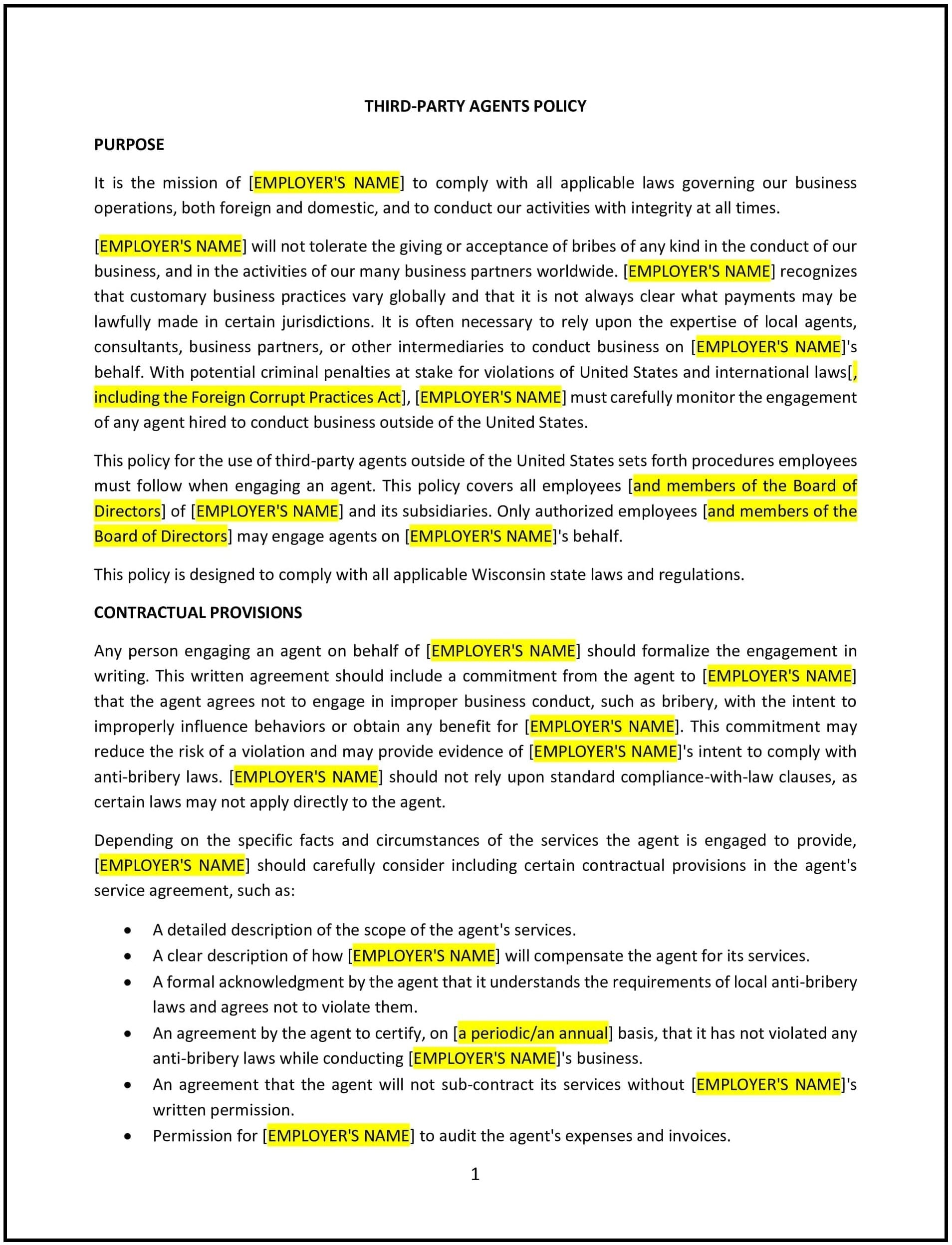Third party agents policy (Wisconsin): Free template
Got contracts to review? While you're here for policies, let Cobrief make contract review effortless—start your free review now.

Customize this template for free
Third party agents policy (Wisconsin)
In Wisconsin, a third party agents policy helps businesses establish clear expectations and guidelines for engaging with external contractors, consultants, or vendors who act on behalf of the company. This policy ensures that third party agents adhere to the organization’s standards for ethics, improves compliance, and performance, reducing risks associated with outsourcing and external partnerships.
The policy outlines the responsibilities of third party agents, the organization’s oversight process, and the procedures for addressing non-compliance or breaches of agreement.
How to use this third party agents policy (Wisconsin)
- Define third party agents: Clearly identify who qualifies as a third party agent, such as contractors, consultants, or vendors, and explain their role in the organization’s operations.
- Establish compliance expectations: Outline the standards third party agents must meet, including adherence to company policies, industry regulations, and Wisconsin state laws.
- Require agreements: Ensure that all third party agents sign agreements detailing their responsibilities, confidentiality obligations, and compliance requirements.
- Monitor performance: Set up procedures to evaluate the performance and compliance of third party agents regularly.
- Address violations: Specify the consequences for non-compliance or breach of contract, including termination of agreements or legal action.
Benefits of using a third party agents policy (Wisconsin)
- Promotes accountability: Ensures that third party agents operate in line with the company’s values and expectations.
- Supports compliance: Helps businesses adhere to Wisconsin state laws and federal regulations by extending compliance requirements to external agents.
- Mitigates risks: Reduces the potential for legal, financial, or reputational harm caused by third party misconduct or negligence.
- Enhances transparency: Establishes clear communication and expectations between the organization and its third party agents.
- Protects company interests: Safeguards confidential information and intellectual property by outlining strict confidentiality requirements.
Tips for using a third party agents policy (Wisconsin)
- Communicate expectations: Share the policy with all third party agents during onboarding and ensure they understand their responsibilities and compliance obligations.
- Conduct due diligence: Vet third party agents thoroughly before engagement to ensure they meet the organization’s standards for ethics, performance, and compliance.
- Maintain documentation: Keep detailed records of contracts, agreements, and performance reviews for all third party agents to ensure transparency and accountability.
- Provide training: Offer training or guidance to third party agents to help them align with the company’s policies and expectations.
- Regularly review the policy: Update the policy as needed to reflect changes in Wisconsin state laws, industry regulations, or organizational priorities.